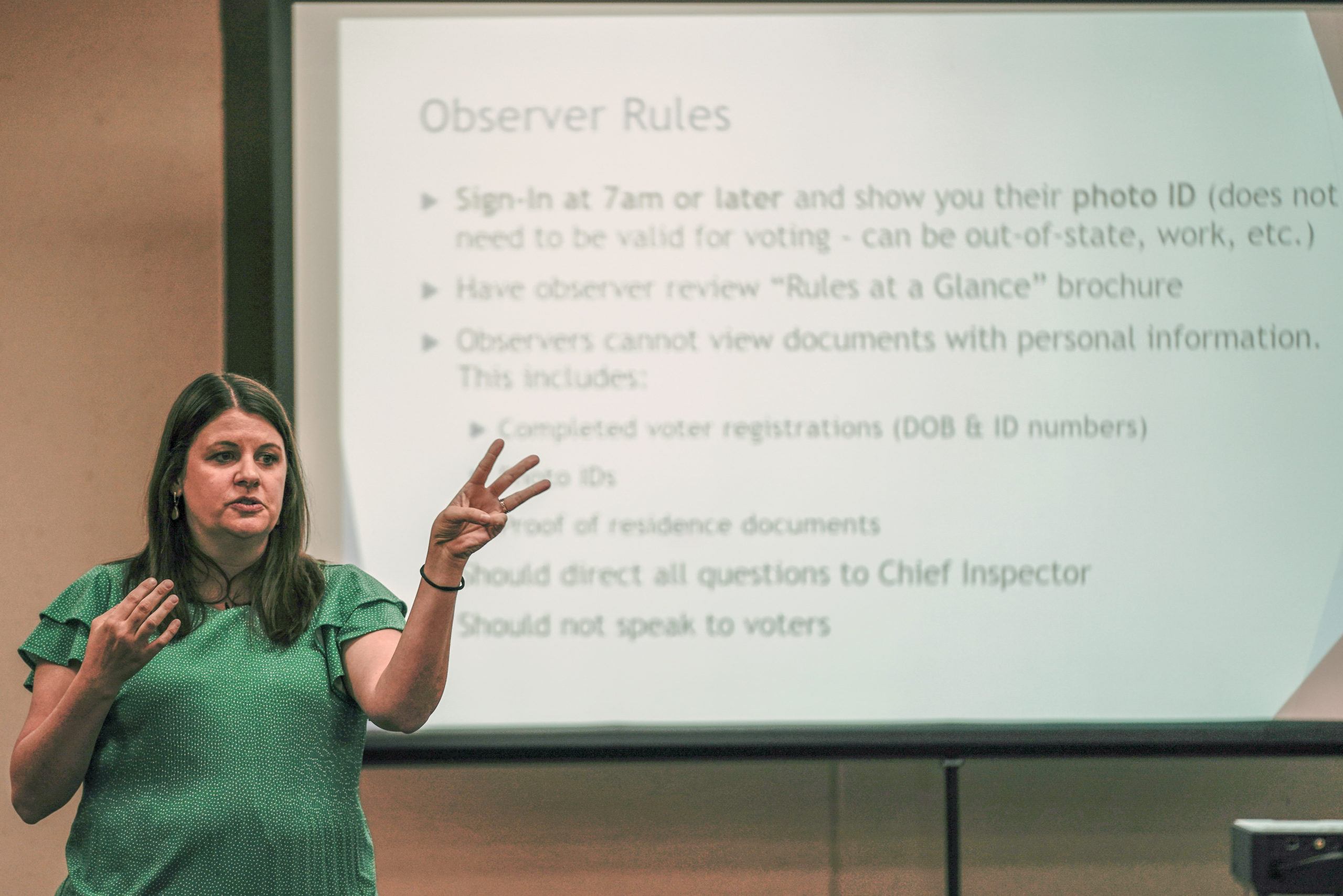Ruling raises questions about mortgage market
By: Dan Shaw, [email protected]//July 10, 2014//
A Wisconsin Supreme Court decision issued Thursday avoided a reinterpretation of law that would have left many mortgage lenders wondering if they could retain their right to foreclose on delinquent loans.
But in not rocking the boat, according to a concurring opinion by Chief Justice Shirley Abrahamson, the court “ignores the characteristics of the modern real estate mortgage to find a simple solution to the instant case — a solution that creates its own set of problems.”
The organization at the heart of the court’s ruling in Dow Family v. PHH Mortgage Corp. is Mortgage Electronic Registration Systems Inc., which tracks mortgage loans after they have been made by the original lender and transferred to other investors or servicing companies. The main question before the court was this: When that system, commonly called MERS, is used to assign a loan to a party other than the original lender, does the right to foreclose on the related mortgage security transfer as well?
The five justices whose names were on the majority opinion, attributed to Justice N. Patrick Crooks, agreed such a transfer does take place. Justice Ann Walsh Bradley did not take part in the decision.
In reaching that conclusion, justices in the majority referred regularly to what is known as the doctrine of equitable assignment. They contended the doctrine, which makes clear that mortgage rights follow loans in transfers, is “alive and well in Wisconsin.”
Had the court reached the opposite conclusion, many Wisconsin lenders might have found themselves holding unsecured loans, said Joe Thrasher, a lawyer who represented the Dow Family in the case. As it was, he said, the court reassured banks and similar institutions but left many other important questions unanswered.
“The finding really was very narrow,” Thrasher said. “Really, it doesn’t address the MERS system at all.”
According to Abrahamson’s concurring opinion, the majority’s ruling in Dow Family had little to do with the realities of the modern mortgage market. Abrahamson contended her colleagues cited precedents, many dating to the 19th or early 20th centuries, that concerned cases in which loans and related mortgages were held by the same person or institution.
The facts in many current mortgage disputes, Abrahamson argued, are vastly different. The Dow Family case, for instance, hinged on whether a loan-servicing company, New Jersey-based PHH Mortgage Corp., had the right to foreclose on a mortgage that was listed in documents as belonging to MERS.
The case arose after principals in Eau Claire-based Dow Family LLC found out following their 2009 purchase of a condominium that the property did not have a free-and-clear title and was still encumbered by a mortgage. According to court documents, the mortgage was one of three the previous owners, William and Jo Sullivan, had taken out on the condominium at the Island of Happy Days, a resort in Barron County.
The first backed a loan obtained in 2001 in the amount of $146,250, the second was a loan made in 2003 for $140,000 and the third played no part in the case before the Supreme Court.
According to court documents, William Sullivan later contended the 2001 and 2003 loans, both issued by Minneapolis-based U.S. Bank, were actually one and the same.
Representatives of the Dow Family, according to the documents, took that statement to mean that a refinancing had taken place. Only after the purchase did the Dow Family hear from PHH Mortgage Corp., which demanded repayment of the first loan and initiated foreclosure proceedings in 2010.
According to court documents, U.S. Bank sent a letter in 2001 notifying the Dow Family that PHH Mortgage would service the loan upon completion of the condominium purchase. Separate paperwork, though, listed MERS as the holder of the mortgage.
Despite that assignment to MERS, Crooks and the other justices behind the majority opinion found that the doctrine of equitable assignment meant that PHH Mortgage held both the 2001 loan and the underlying mortgage security.
According to MERS’ website, there’s a simple reason why MERS often is made the holder of mortgages for loans tracked through its system. In the United States, mortgages have to be recorded in county government offices to hold up in court. The 2001 loan involved in the Dow Family case, for instance, was registered June 22 of that year in the Barron County Register of Deed’s office.
In the modern day of regular transfers and assignments of loans, lenders would be under a heavy burden if they had to re-record a mortgage every time the related debt was moved from one party to another, according to MERS website. Keeping the mortgages in the name of MERS “reduces work and cost,” according to the site.
A representative of MERS could not be reached by deadline Thursday afternoon.
Both the majority opinion in the Dow Family case and Abrahamson’s concurring opinion questioned how MERS could act as the holder of a mortgage and, at the same time, the agent of a company that was servicing the related loan. Still, the court’s ruling established that, no matter what is on paper, the mortgage follows the loan.
According to Abrahamson’s concurring opinion, the outcome was “reasonable enough.” Yet she predicted that as courts continue to be the scenes of foreclosure battles stemming from the recent recession, the questions she raised will become only weightier.
“The majority opinion,” according to Abrahamson’s opinion, “does not attempt to address the practical concerns of the current mortgage foreclosure crisis, the realities of the modern mortgage market, the values of the recording system, or the current and future problems associated with the modern mortgage system presented in the instant case.”
Legal News
- Money isn’t enough to smooth the path for Republican candidates hoping to retake the Senate
- Milwaukee election leader ousted 6 months before election in presidential swing state
- Former President Trump calls for arrest of special prosecutor Jack Smith
- Wisconsin judge dismisses lawsuit challenging state’s new wolf management plan
- Wisconsin Supreme Court issues opinion on Milwaukee Police officer fired over Facebook posts
- Gov. Evers Seeks applicants for Menominee County Register of Deeds
- Donald Trump calls Joe Biden weak on antisemitism, ignoring his own rhetoric
- Gov. Evers again calls Republican lawmakers into special meeting
- CIA is obstructing justice and witness tampering in Havana Syndrome cover up, attorney says
- Wisconsin Supreme Court will decide whether mobile voting sites are legal
- WisDOT honors Wisconsin State Patrol staff for going above and beyond to keep communities safe
- Milwaukee Men sentenced to Federal Prison for pharmacy robberies and firearms offenses
WLJ People
- Power 30 Personal Injury Attorneys – Russell Nicolet
- Power 30 Personal Injury Attorneys – Benjamin Nicolet
- Power 30 Personal Injury Attorneys – Dustin T. Woehl
- Power 30 Personal Injury Attorneys – Katherine Metzger
- Power 30 Personal Injury Attorneys – Joseph Ryan
- Power 30 Personal Injury Attorneys – James M. Ryan
- Power 30 Personal Injury Attorneys – Dana Wachs
- Power 30 Personal Injury Attorneys – Mark L. Thomsen
- Power 30 Personal Injury Attorneys – Matthew Lein
- Power 30 Personal Injury Attorneys – Jeffrey A. Pitman
- Power 30 Personal Injury Attorneys – William Pemberton
- Power 30 Personal Injury Attorneys – Howard S. Sicula











